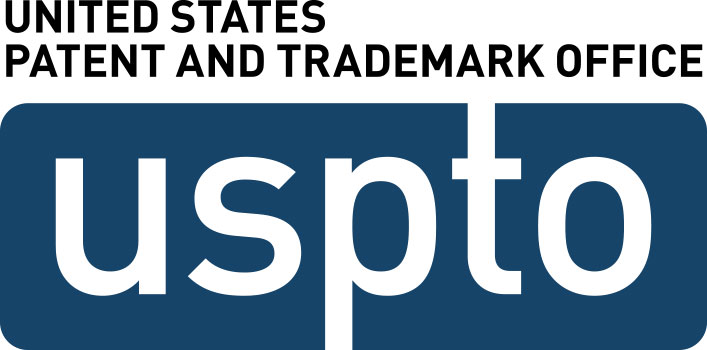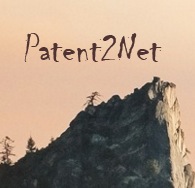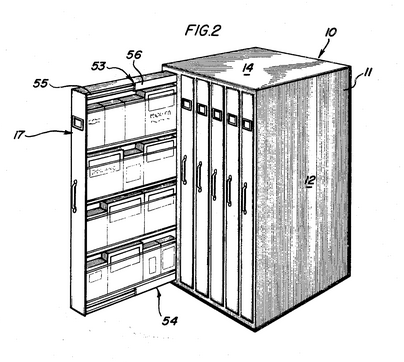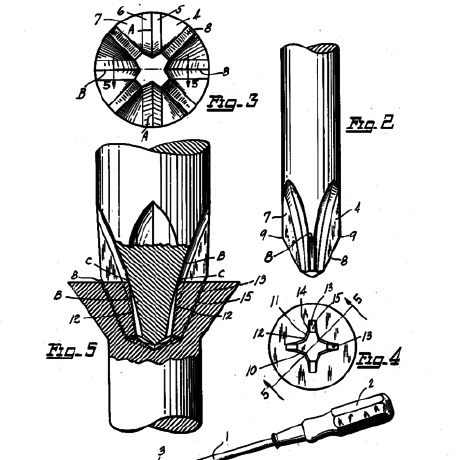IP Tools
We are developing innovative software for processing intellectual property information based on modern components and technologies. Open source and a friendly community.
A curated list of software applications, modules, and resources.
Open source software projects live from collaboration, contribution and participation. You are welcome to join our efforts.
If you feel your project is missing here or when you have other suggestions, please drop
us a line at info@ip-tools.org,
send a pull request or join us at https://meta.ip-tools.org/.
Software modules written in the Python programming language.

Python Client for the European Patent Office's Open Patent Services API (OPS).
Python Client for the European Patent Office's Open Patent Services API (OPS).
Currently, it implements access to:
Synopsis
# Instantiate client
import epo_ops
client = epo_ops.Client(key='abc', secret='xyz')
# Retrieve bibliography data
response = client.published_data(
# publication, application, priority
reference_type = 'publication',
# original, docdb, epodoc
input = epo_ops.models.Docdb('1000000', 'EP', 'A1'),
# optional, defaults to "biblio"
# in case of published_data
endpoint = 'biblio',
# optional, list of constituents
constituents = []
)

pypatent is a tiny Python package to easily search for and scrape US Patent and Trademark Office Patent Data.
pypatent is a tiny Python package to easily search for and scrape US Patent and Trademark Office Patent Data.
Currently, it implements access to:

A client library and command line program for accessing the USPTO Open Data APIs (PBD and PEDS), written in Python.
A client library and command line program for accessing the USPTO Open Data APIs (PBD and PEDS), written in Python.
Currently, it implements access to:
Synopsis
# Initialize from uspto.pbd.client import UsptoPairBulkDataClient client = UsptoPairBulkDataClient() # Search by expression result = client.search('firstNamedApplicant:(nasa)') # Acquire single document in JSON and XML formats result = client.download_document('PP28532')
Command line usage
# Fetch document by US application publication # number and pretty-print JSON result uspto-pbd get "2017/0293197" \ --type=publication --format=json --pretty

Plumage is a library to obtain trademark status and other information from the USPTO Trademark Status & Document Retrieval system (TSDR) with implementations for Python and .NET.
Plumage is a library to obtain trademark status and other information
from the USPTO Trademark Status & Document Retrieval system (TSDR)
with implementations for Python and .NET.
Currently, it implements access to:
Synopsis
Python
# Initialize from Plumage import plumage client = plumage.TSDRReq() # Get info on application serial no. 75/181,334 client.getTSDRInfo("75181334", "s") # Access some attributes print "Trademark text: ", \ client.TSDRMap["MarkVerbalElementText"]
C#
// Initialize Plumage.TSDRReq client = new Plumage.TSDRReq(); // Get info on registration no. 2,564,831 client.getTSDRInfo("2564831", "r"); // Access some attributes Console.WriteLine("Trademark text: " + client.TSDRMap["MarkVerbalElementText"]);
Software modules written in the Ruby programming language.

API wrapper around the PAIR Bulk Data US patent office database, written in Ruby.
API wrapper around the PAIR Bulk Data US patent office database, written in Ruby.
Currently, it implements access to:
Synopsis
# Create a pd object, and go to town client = Pairdata::Client.new() res = client.pair_sync(searchText: '12432343') puts res.appStatus puts res.patentTitle

Library for accessing data from the WIPO PATENTSCOPE Web Service, written in Ruby.
Library for accessing data from the WIPO PATENTSCOPE Web Service, written in Ruby.
Currently, it implements access to:
- International Application Status Report (IASR)
- list of available documents by application number
- binary content of a document
- text of a document in PDF format (high quality OCR)
- list of page IDs for a document
- binary content for a document and page
Software modules written in the R programming language.

R package to access the European Patent Office Open Patent Services API (OPS).
R package to access the European Patent Office Open Patent Services API (OPS).
Currently, it implements access to:
Synopsis
# Install package devtools::install_github("poldham/opsrdev") # Load library library(opsrdev) # Get count for patent biblios (front pages) ops_count("drones", "ta", start = 1990, end = 2015) # Submit query and return result as data.frame drones <- ops_fetch_biblio( query = "drones", type = "ta", service = "biblio", start = 1990, end = 2015, timer = 10)

An R client to obtain data from the PatentsView API.
An R client to obtain data from the PatentsView API.
Currently, it implements access to:
Synopsis
# Install package devtools::install_github("ropensci/patentsview") # Load library library(patentsview) # Perform search search_pv( query = '{"_gte":{"patent_date":"2007-01-01"}}')

R package to access patent data from the Lens Patent Database.
R package to access patent data from the Lens Patent Database
Currently, it implements access to:
Synopsis
# Install package devtools::install_github("poldham/lensr") # Load library library(lensr) # Get count for patent biblios (front pages) lens_count("drones") # Submit query and return result as data.frame drones <- lens_search( query = "drones", type = "tac", families = TRUE, timer = 20)
Applications from the community.

Patent2Net helps to collect, study and analyze patent data from the European Patent Office's Open Patent Services API (OPS).
Patent2Net is free software, dedicated to ...
- provide statistical analysis and representations of a set of patents.
- promote the use of patent information in the academic field, nano and small firms, developing countries and all those without pay mode access.
- study and practice how to collect, treat and communicate "textual bibliographic information" and learn the automation process.
Currently, it implements access to:
Under the hood, these fine pieces are the main workhorses:
- Python
- pandas
- NumPy
- NLTK
- scikit-learn
- Matplotlib
- Graphviz
- Gephi
- NetworkX
- D3.js
- DataTables
- PivotTable
- ... and some more. The software also integrates with other programs, see Patent2Net: Third party software.

About
phpIP is a portfolio manager and docketing system for patents and other IP rights. It is intended to satisfy most needs of an IP law firm. The tool was designed to be flexible and easy to use. It is based on Apache, MySQL and the Laravel PHP framework.
Mission
We found that existing docketing systems are designed to satisfy the needs of a majority – hence they have more features than what each individual user needs. So, these systems are usually very complicated to use, yet not all specific needs of the individual user are satisfied.
Mostly, the user needs to adapt to the system, whereas it should be just the other way round.
Background
As we are patent attorneys, we don't have the resources for selling and maintaining our software. We decided to open source phpIP as we would like others to benefit from it and hopefully contribute. This is an important step in reaching the goal of creating a tool adapted to the user's specific needs. We also designed phpIP to be extremely flexible, so that, hopefully, most users will be able to configure it (and not redesign it) to fit their needs.

PatZilla is a modular patent information research platform and toolkit with a modern user interface. It provides convenient and efficient access to a number of professional patent search APIs.
PatZilla is a modular patent information research platform and toolkit with a modern user interface. It provides convenient and efficient access to a number of professional patent search APIs.
Currently, it implements access to:
Under the hood, it uses contemporary software components and technologies:
- Nginx
- uWSGI
- MongoDB
- Python
- Pyramid
- Celery
- Backbone.js
- Marionette.js
- ... and some more.
Applications from the USPTO.

A mobile application for iOS and Android accessing the PatentsView API.
A mobile application for iOS and Android accessing the PatentsView API.
Currently, it implements access to:
Users can ...
- search patents using various criteria like Assignee, Date, Id, Inventor, Title.
- search results can be sorted in ascending or descending order by title and date.
- bookmark interesting patents or search results and organize them into Notebooks.
- access related documents and text content.
- view previous search results or last viewed document.

A mobile application for iOS and Android accessing the USPTO TSDR system.
A mobile application for iOS and Android accessing the USPTO TSDR system.
Currently, it implements access to:
Users can ...
- search for trademarks.
- bookmark interesting trademarks and group them into notebooks.
- receive notifications on status changes to bookmarks.
- indicate preference for specific trademark statuses.
- share bookmarks.

The WIPO Manual on Open Source Patent Analytics
In this book, Paul and Irene provide a practical guide to free and open source software tools for patent analytics. Its aim is to provide a practical introduction to patent analytics without assuming prior knowledge of patents or programming languages. It focuses on answering two main questions:
- How to obtain patent data in a form that is useful for different types of analysis?
- How to tidy, analyse, visualize and share patent data using open source and free software?

The Raw Patent Data blog
Gianluca maintains scripts and writes about how to import the EPO PATSTAT data into a MySQL database but also covers a whole lot of more topics around raw patent data and beyond.